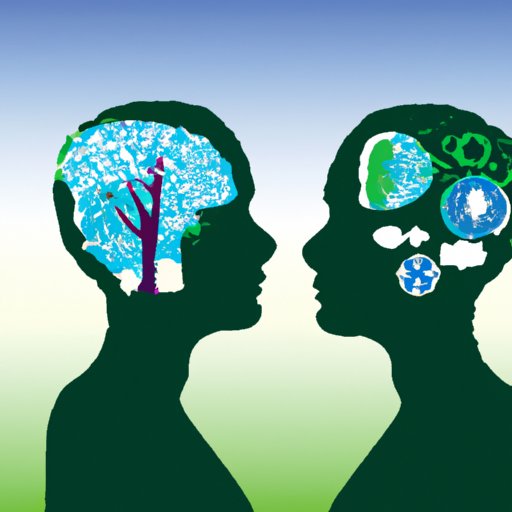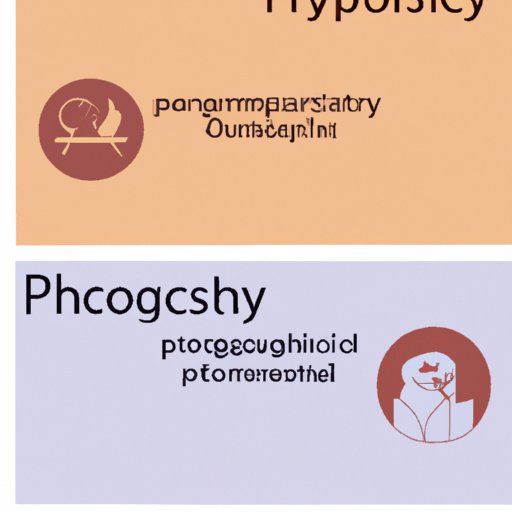Introduction
Psychology is a field of study that focuses on understanding human behavior, emotions, and cognition. This field has evolved over time, from its roots in philosophy to its current status as a scientific discipline. But is psychology a natural science? This article will explore the relationship between psychology and natural science, examining how it relates to other natural sciences, investigating theoretical perspectives on psychology as a natural science, and understanding the role of psychology in natural science research.

Exploring the Relationship between Psychology and Natural Science
When it comes to understanding the relationship between psychology and natural science, it’s important to first define each term. Natural science is defined as the study of the physical and natural world through observation and experimentation. This includes fields such as biology, chemistry, physics, and astronomy. Psychology, on the other hand, is the scientific study of the mind and behavior. It’s a branch of science that focuses on understanding the mental processes and behaviors of humans and other animals.
The relationship between psychology and natural science is complex and varied. While psychology certainly has connections to other natural sciences, it is not considered a part of the natural sciences. For example, psychology is closely related to biology in that it studies the brain and its effects on behavior. However, psychology is distinct from biology in that it does not focus on the physical aspects of the body. Similarly, psychology has connections to chemistry in that it investigates the chemical processes in the brain, but it does not focus on the actual molecules and atoms that make up these processes.
In addition to exploring the connections between psychology and other natural sciences, it’s also important to examine how psychology is viewed from a theoretical perspective. While some theorists believe that psychology is a natural science, others argue that it is more accurately classified as a social science due to its focus on understanding the social environment and its influence on behavior. In either case, there is no definitive answer as to whether psychology should be considered a natural science or a social science.
Understanding the Role of Psychology in Natural Science Research
While psychology may not be considered a part of the natural sciences, it can still play an important role in natural science research. Interdisciplinary research between psychology and natural science can be beneficial in a variety of ways. For example, psychological theories can help scientists better understand the behavior of certain organisms, while natural science findings can be used to inform psychological theories. Additionally, psychologists can work with natural scientists to develop new methods for studying the natural world.
Interdisciplinary research between psychology and natural science can also be useful in practical contexts. For example, psychologists can collaborate with natural scientists to develop new technologies that can be used to monitor the environment or predict natural disasters. Similarly, psychologists can work with natural scientists to design experiments that can be used to study the effects of environmental changes on animal behavior. By combining the insights of both disciplines, researchers can gain a more comprehensive understanding of the natural world.
Finally, psychology can also be used to evaluate the impact of natural science practices. For example, psychologists can use their expertise to assess the ethical implications of certain scientific experiments or technologies. Additionally, psychologists can use their knowledge of human behavior to inform decisions about conservation efforts and the responsible management of natural resources.
Conclusion
In conclusion, psychology is not considered a part of the natural sciences, but it can still play an important role in natural science research. By exploring the connections between psychology and other natural sciences, examining theoretical perspectives on psychology as a natural science, and understanding the role of psychology in natural science research, it is possible to gain a better understanding of the relationship between psychology and natural science. Ultimately, this research can help us to better understand the natural world and to make informed decisions about our interactions with it.
Despite the fact that psychology is not considered a part of the natural sciences, there is still much to be gained from interdisciplinary research between psychology and natural science. By combining the insights of both disciplines, researchers can gain a more comprehensive understanding of the natural world and can use this knowledge to inform decisions about conservation efforts and the responsible management of natural resources.
Overall, the relationship between psychology and natural science is complex and varied. While psychology may not be considered a part of the natural sciences, it can still play an important role in natural science research. By exploring the connections between psychology and other natural sciences, examining theoretical perspectives on psychology as a natural science, and understanding the role of psychology in natural science research, it is possible to gain a better understanding of the relationship between psychology and natural science.
(Note: Is this article not meeting your expectations? Do you have knowledge or insights to share? Unlock new opportunities and expand your reach by joining our authors team. Click Registration to join us and share your expertise with our readers.)
